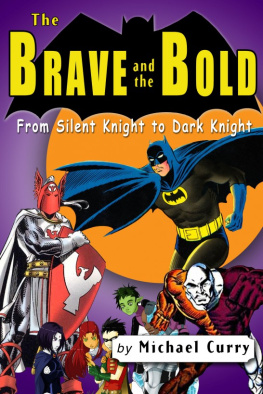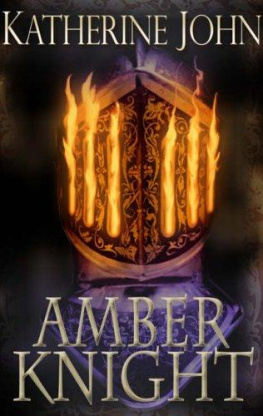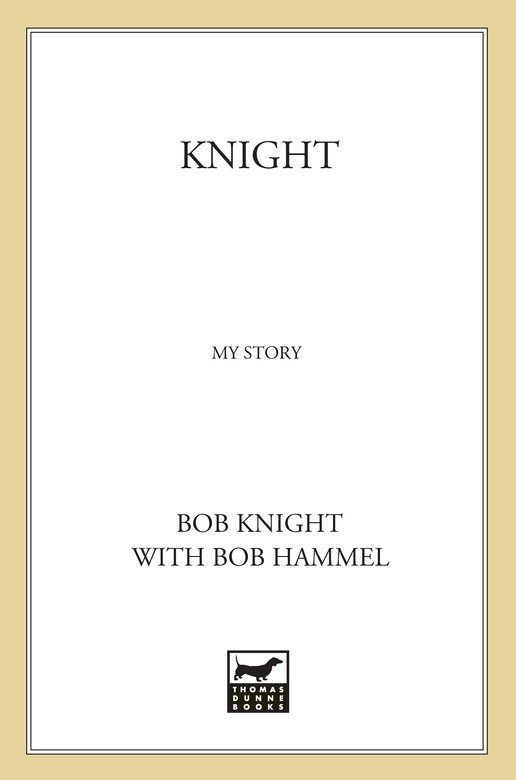The author and publisher have provided this e-book to you for your personal use only. You may not make this e-book publicly available in any way. Copyright infringement is against the law. If you believe the copy of this e-book you are reading infringes on the authors copyright, please notify the publisher at: us.macmillanusa.com/piracy .
Standard procedure in this section is to say thanks forto acknowledgevital assistance in researching and processing a book. I had lots of that from many people, and I do want to express my appreciation.
More than that, though, I acknowledge the great fortune Ive had in the people Ive met and gotten to know so well over my long basketball trail.
Ive been blessed with mentors, with friends who have and have earned great renown in sports and in other roles, and with friends not so well-known but every bit as dear and as close to me.
Im sure Ive left out or greatly shortchanged some who qualify in each of those categories. The mentioned, the undermentioned, and the unmentioned all are part of the mosaic of people who have helped me in ways they might not remember, but I always will remember the people and their acts, and appreciate them deeply.
I acknowledge that there are some people Ive run into along the line that Im not so big on. Their number is vastly exceeded by the long, long list of people Im indebted to for their help and their friendship.
Many of those showed up in Lubbock, Texas, the night of November 16, 2001, to see and help me get started in a new season, at a new location. The effort those people made to get there touched me deeply. Ive never felt more honored. We were all entertained by the unmatched humor of Abe Lemons, one of my favorite people and one of the best and most underrated college basketball coaches ever. John Havlicek was there one more time and helped me once again, by talking to my Texas Tech team. I wont go on with names, but every one of the people who interrupted their own lives to get to Lubbock that special weekend will always have my appreciation.
A major purpose of this book is to acknowledge the privilege Ive had to have spent my life in basketball, in America. Ive always had an awareness, a sense of debt to so many who fought for and protected our country, but I thinkall of us elevated our national pride and determination in support of our citizen and military efforts to see that what happened on September 11, 2001, will never happen again.
The dedication and national response to the tremendous losses suffered by the New York City Police and Fire Departments and all the other victims at the Trade Center and the Pentagon will forever be a part of the greatest tradition of all: the ability to rise and unite to overcome adversity and tragedy.
Books by Bob Hammel
Knight with the Hoosiers (1975)*
NCAA Indiana All the Way (1976)*
The Champs (1981)*
Beyond the Brink with Indiana (1987)*
Super Scout (1992)
(autobiography of baseball scout Jimmy Russo)
A Banner Year at Indiana (1993)*
Silver Knight (1997)*
Hoosiers: Classified (1997)
(anecdotal history of Indiana high school basketball)
Glory of Old IU (1999)
(century review of IU athletics)
*Books on Indiana University basketball
F or the most part, things felt familiar when I walked through the entrance out onto the playing floor at a few minutes after seven on November 16, 2001. It was opening night for my first Texas Tech basketball team. I was nervous; Im always nervous the day of any game, because I see all the ways we could get beat in the game about to be played. There was one difference in this entrance: after wearing red sweaters for about five hundred straight games, I was in Texas Tech black. And it felt very good.
During my career in coaching, Ive had five different jobs. I remember what my thoughts were going into each of the fiveand each was different. When I went to Cuyahoga Falls High School to be an assistant to Harold Andreas, I wanted to see if I would like coaching. Teaching was part of that jobfour classes of Problems of Democracy, a required course for seniors, and two study halls. I enjoyed the teaching, but I didnt think I would want to stay with that.
No coach could have had a better start than being with Andy. He was one of the best coaches Ive ever been around. He not only guided his assistant coaches, but also allowed them to do some things on their ownwhich included making mistakes. He always brought mine to my attention, and I grew a little as a coach each time. The experience with Andy at Cuyahoga Falls convinced me that, at that time, I really would like to coach basketball.
After that season with Andy, the opportunity came along to go to West Point. It meant I had to join the army, but I didnt hesitate. I thought it would be a unique experience, and it was. I would have always been glad I did that, even if going to West Point had not worked out for me in basketball as it did.
When I started working there for Tates Locke, I wasnt sure if I would enjoy being away from home. I had lived in Ohio for twenty-three years, alwayspretty close to Orrville and the friends I had there. Now I was going to a place where I didnt know anybody. I thought that would be interesting.
Coaching basketball in college was what I wanted to do because in most cases classroom teaching was not part of the job. I picked up a lifelong friend in Tates, whom I found to be an outstanding coach although he wasnt much older than I was when I joined him. He helped me answer another question by letting me become involved with recruiting, another thing I had to see if I would enjoy. I thought that alone would determine whether I would want to try to stay in college coaching after West Point.
My third job came two years later when I moved up to head coach at Army. My thoughts starting that phase of my coaching life were: Can I do this? Can I organize a team, the practices, a coaching staffall the things that go along with being a head coach? And there was one other big question: Can I put together a team that can win?
Ive always felt that as a basketball coach I had two ultimate objectives. One was to provide my players with the best background possible toward success in their future lives. I wanted to be the best teacher each one of them felt theyd had anywhere in their educational experience. The second objective was to win games. Ive never been ashamed that winning was always important to meand not only to me. I also considered it extremely important that our players learned how to win and all that went into it.
The next step was leaving West Point. I wanted to make sure I used West Point as a stepping stone to a situation where I could coach a team that could compete for a national championship. Several coaching opportunities came along in the six years I was Armys coach, and one or two may have ultimately been as good as Indiana. Im not at all sure about that.
When I went to Indiana, I had new questions: Will the way I teach basketball work against the best players and the best coaches in the country? I knew we were going to find that out against the teams that we played against there. It eventually became a question at Indiana of whether we stay on top year after year? Our run of Big Ten championships answered that particular question for me.

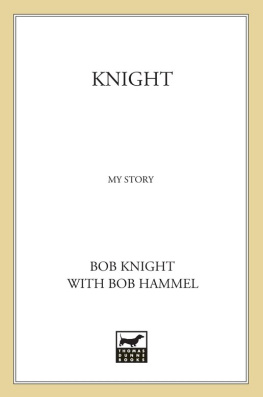
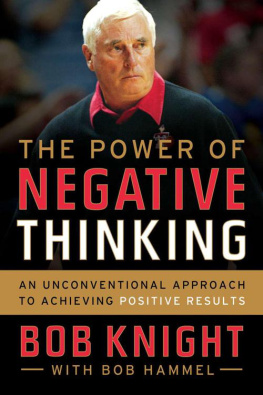

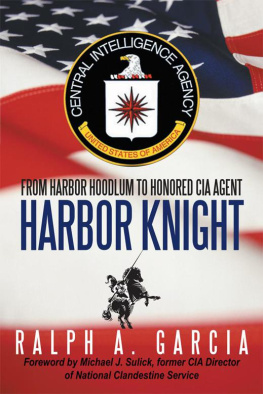
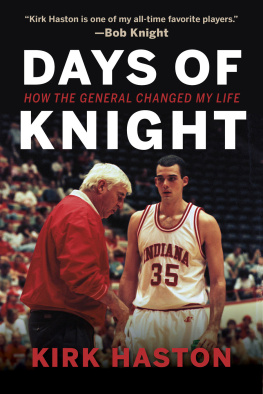

![Jamie Knight [Jamie Knight] - Revealing His Virgin](/uploads/posts/book/141323/thumbs/jamie-knight-jamie-knight-revealing-his-virgin.jpg)




